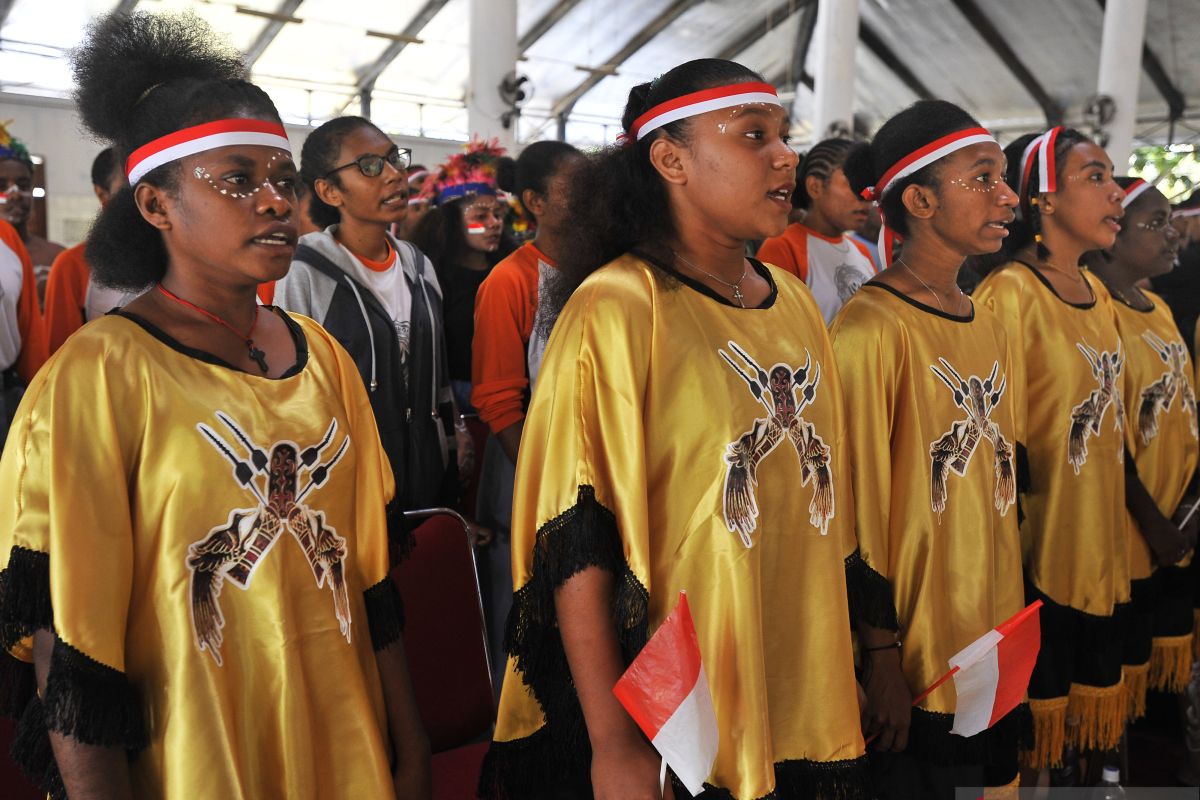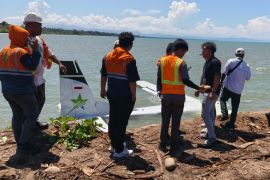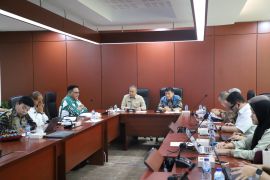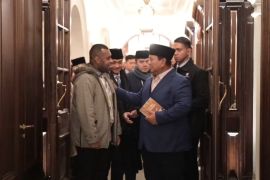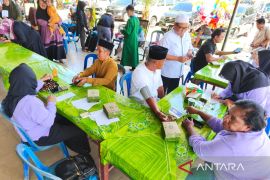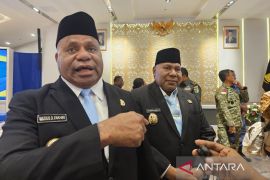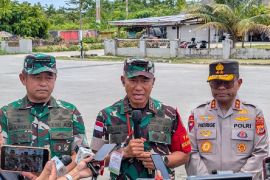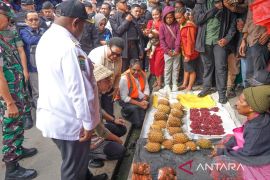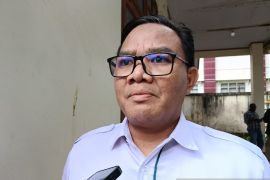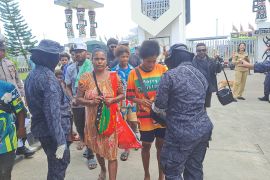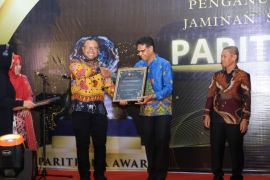Owing to the pandemic situation, the commemorative events highlighting the theme of "Moving forward simultaneously to implement freedom to learn" were held virtually to prevent the spread of novel coronavirus disease.
Through his official Instagram account, President Joko Widodo (Jokowi) sent an encouraging message to all students across Indonesia.
"The world has been in the grip of COVID-19 pandemic for more than a year but our children's spirit of learning must never fade away. May this time of crisis will end soon, and we all can have a face-to-face meeting again," Jokowi posted a text on his Instagram account.
Indeed, the global pandemic of COVID-19 that has dragged Indonesia into the twin health and economic crises since March last year has forced schools and universities across the country to conduct a digital transformation in their learning and teaching processes.
In protecting teaching staff and students from getting infected by or transmitting the coronavirus disease, the Indonesian government continues its learning-from-home policy during the COVID-19 pandemic.
As a result, school teachers and university teaching staff shift their classroom-based teaching or lecturing activities into an e-learning mode. Thus, students across the country, including those in Papua and West Papua Provinces, are demanded to participate in the online-teaching and learning activities.
Apart from the digital transformation in education that Indonesia has taken up during the pandemic, this year's National Education Day can be used to create a momentum to address inequality in quality education between Java and outside of the island.
This inequality is so obvious, and becomes a challenging homework for Nadiem Makarim who had taken his oath of office as the minister for education, culture, research and technology in a minor reshuffle on April 28, 2021.
Java is always perceived as Indonesia's main suppliers of good quality education thanks to the presence of so many top schools and universities while the number of centers of excellence in regions outside the island is still quite limited.
In terms of Indonesia's top universities, for instance, the government's web-based research information system, Sinta (Science and Technology Index), has confirmed the fact of the quality gap between higher educational institutions in Java and outside of the island.
According to Sinta, Indonesia's 20 performing universities in research publications over the past three years are dominated by those in Java while several others are represented by those in the islands of Sumatra, Bali, and Sulawesi.
The 20 performing universities are the University of Indonesia (UI), Gadjah Mada University (UGM), Airlangga University (Unair), Bandung Institute of Technology (ITB), Hasanuddin University (Unhas), Padjadjaran University (Unpad), Bogor Agricultural University (IPB), Brawijaya University (Unibraw), Indonesia University of Education (UPI), University of Sumatera Utara (USU), Malang State University (UNM), Diponegoro University (Undip), Syiah Kuala University (USK), Sebelas Maret University (UNS), Sepuluh November Institute of Technology (ITS), Yogyakarta State University (UNY), Semarang State University (Unnes), Padang State University (UNP), Udayana University (Unud), and Sriwijaya University (Unsri).
Based on the above data that Sinta published on https://sinta.ristekbrin.go.id/ on Saturday (May 2, 2021), the universities in regions of outside Java that are recorded to be productive in Scopus-indexed research publications are merely represented by Unhas, USU, USK, UNP, Unud, and Unsri.
The Makassar-based Hasanuddin University represents Sulawesi while the island of Sumatra is represented by USU, USK, UNP, and Unsri; and Bali Island is represented by Unud. The islands of Kalimantan, West and East Nusa Tenggara, Maluku, and Papua do not have any representative in the 20 performing universities in research publications.
If the quality gap in higher education is just compared between Indonesia's westernmost and easternmost provinces, it is also obvious.
While Aceh is represented by the Syiah Kuala University (USK) in Sinta's top 20 universities, Papua's Cenderawasih University (Uncen) has yet to be able to present itself in the prestigious list.
Looking at the scores that Aceh, Papua, and West Papua have respectively achieved on Indonesia's 2020 Human Development Index, the inequality seems to be more obvious.
Statistics Indonesia (BPS) revealed that Aceh has scored 71.94 while Papua and West Papua, which have received special autonomy funds amounting to Rp126.99 trillion since 2012, have scored 60.44 and 65.09 respectively on the human development index.
Addressing the inequality in Indonesia's quality education is the responsibility of Nadiem Makarim-headed ministry though it cannot work alone to fix the problem.
With regard to efforts to improve the quality of human capital in Papua and West Papua, the Indonesian Finance Ministry, for instance, has ever advised the regional governments to allocate an endowment fund to finance human resource development and education of native Papuans.
The fund can be allocated from their annual budget, according to director of the Finance Ministry's endowment fund for education (LPDP) scholarship program, Dwi Larso.
In addition to that, Papua and West Papua must have talented government officials who can think and work outside the box as well as maintain effective coordination and good communication.
"We need 'insanity' to develop Papua. We cannot work like business-as-usual," Secretary of the Papua provincial administration, Dance Yulian Flassy, said last March.
He highlighted the importance of effective and solid coordination among local government officials in resolving problems in the province.
"A solid coordination and good communication are so important because none of the problems in Papua cannot be solved if they communicate well," he remarked.
Related news: See no reason for Papuans to demand independence: Community leader
Related news: Undersea cable break: Papuans urged not to believe sabotage rumors
Copyright © ANTARA 2021
